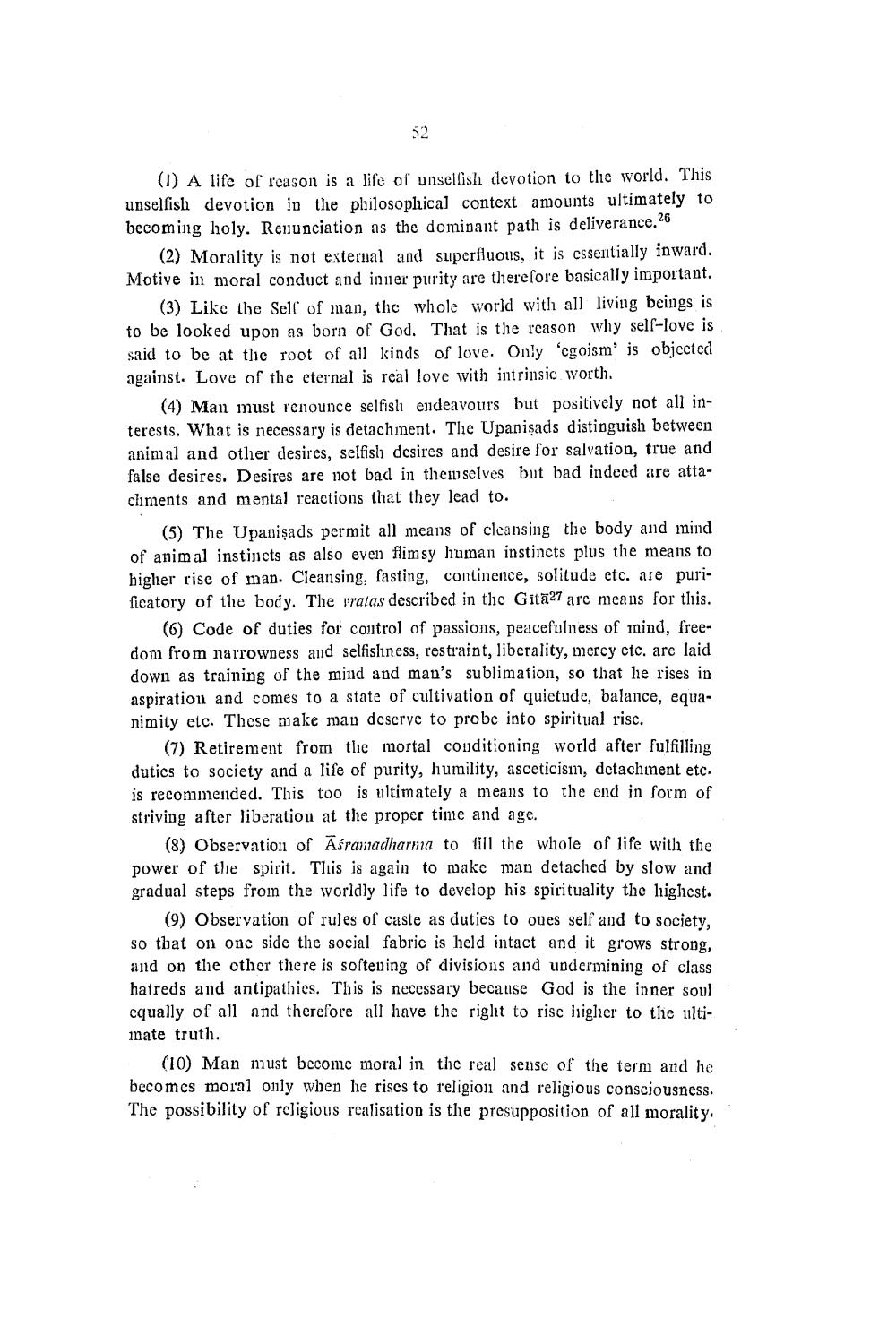________________
(1) A life of reason is a life of unselfish devotion to tle world. This unselfish devotion in the philosophical context amounts ultimately to becoming holy. Renunciation as the dominant path is deliverance. 26
(2) Morality is not external and superfluous, it is essentially inward. Motive in moral conduct and inner purity are therefore basically important.
(3) Like the Self of man, the whole world with all living beings is to be looked upon as born of God. That is the reason why self-love is said to be at the root of all kinds of love. Only 'cgoism' is objccted against. Love of the eternal is real love with intrinsic worth
(4) Man must renounce selfislı endeavours but positively not all interests. What is necessary is detachment. The Upanişads distinguish between animal and other desires, selfish desires and desire for salvation, true and false desires. Desires are not bad in themselves but bad indeed are attachments and mental reactions that they lead to.
(5) The Upanişads permit all means of cleansing the body and mind of animal instincts as also even flimsy human instincts plus the means to higher rise of man. Cleansing, fasting, continence, solitude etc. are purificatory of the body. The vratas described in the Gitā27 are means for this.
(6) Code of duties for control of passions, peacefulness of mind, freedom from narrowness and selfishness, restraint, liberality, mercy etc. are laid down as training of the mind and man's sublimation, so that he rises in aspiration and comes to a state of cultivation of quietude, balance, equanimity etc. These make man deserve to probe into spiritual rise.
(7) Retirement from the mortal couditioning world after fulfilling duties to society and a life of purity, humility, asceticisin, detachment etc. is recommended. This too is ultimately a means to the end in form of striving after liberation at the proper time and age.
(8) Observation of Āśramadharma to fill the whole of life with the power of the spirit. This is again to make man detached by slow and gradual steps from the worldly life to develop his spirituality the highest.
(9) Observation of rules of caste as duties to ones self and to society, so that on one side the social fabric is held intact and it grows strong, and on the other there is sostening of divisions and undermining of class hatreds and antipathies. This is necessary because God is the inner soul equally of all and therefore all have the right to rise higher to the ultimate truth.
(10) Man must become moral in the real sense of the term and he becomes moral only when he rises to religion and religious consciousness. The possibility of religious realisation is the presupposition of all morality.




